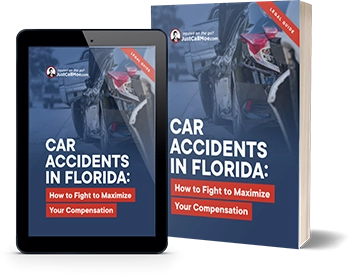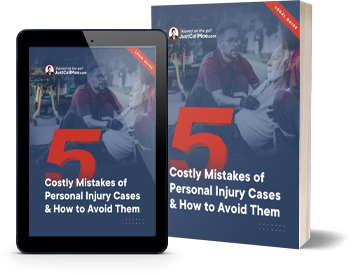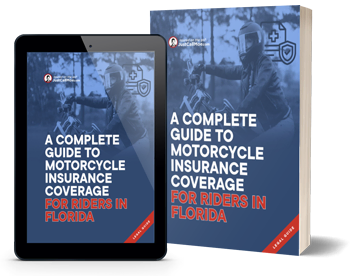If you have been injured in an accident, such as a car crash, you may find it difficult to understand your options when it comes to seeking compensation for your medical bills, lost income, and other out-of-pocket losses. Many Orlando-area residents simply assume that insurance will take care of all of these issues. But this is just one of many common myths surrounding personal injury claims.
We understand that sorting out personal injury facts from fiction can be overwhelming, especially when you are struggling to deal with the immediate aftermath of your accident. With that in mind, here are five of the more common myths that we have seen with our clients.
Myth #1: I Don’t Need to File a Personal Injury Claim Because I Have No-Fault Insurance
Florida law requires all drivers to purchase and carry auto insurance that includes personal injury protection (PIP) coverage. This is often referred to as “no-fault” insurance because your insurer is required to pay certain benefits regardless of who was responsible for the underlying car accident.
And in many cases, no-fault insurance is your only legal avenue of seeking compensation for a car accident.
Unfortunately, PIP coverage does not fully compensate you for your losses. Florida law only requires a no-fault insurer to cover up to 80 percent of an accident victim’s reasonable medical expenses and 60 percent of their lost income. These benefits are further subject to the policy’s maximum coverage limit, which is usually just $10,000.
More to the point, you are not always limited to your no-fault coverage. If you sustain a “serious injury” as a result of a car accident, such as permanent disfigurement or loss of bodily function, then you can go outside of the no-fault system and file a personal injury claim against the negligent driver. In such cases, you are entitled to seek full compensation for all of your losses, including non-economic damages like pain and suffering, which are not eligible for no-fault benefits.
Finally, it is important to remember that no-fault insurance rules only apply to personal injury claims arising from auto accidents. They do not cover other types of personal injury cases, such as medical malpractice or slip-and-fall accidents, where you can always sue a negligent defendant for compensation.
Myth 2: I Don’t Have a Personal Injury Case Because I Didn’t Suffer a Visible Injury
In many personal injury cases, it does not take a trained medical professional to understand what happened, such as breaking your leg or sustaining third-degree burns. However, many accidents do not produce readily visible injuries. For instance, many people sustain traumatic brain injuries in car accidents, yet they are able to get up and walk around following the collision without showing any immediate signs of a problem. Indeed, it may take several days or weeks before the victim receives a proper diagnosis and treatment for such injuries.
Then there are mental or psychological injuries to consider. Many accident victims suffer post-traumatic stress disorder and similar mental injuries following their initial trauma. Such injuries can be more difficult to illustrate or quantify than an external physical injury. Yet we all know such injuries are real.
For this reason, Florida personal injury law allows accident victims to seek compensation for such non-visible injuries. In addition to compensation for any medical bills incurred to treat such injuries, victims can also demand non-economic damages for their pain and suffering, mental anguish, emotional distress, and other psychological consequences of their physical injuries.
Myth 3: I Can’t File a Personal Injury Lawsuit Because I Was Partly to Blame for the Accident
Personal injury cases are not always black-and-white when it comes to liability. If two cars get into an accident, for instance, each driver may have done something that helped contribute to the crash.
But this does not mean that an injured victim is barred from filing a personal injury claim against the other driver.
Historically, many states including Florida followed a “contributory negligence” rule in personal injury cases. In simple terms, this meant that a plaintiff could recover nothing if they were even 1 percent at fault for an accident. As of 2023, however, Florida follows a “modified comparative negligence” rule. Under this standard, a plaintiff can still recover compensation from a negligent defendant even if the plaintiff was partly at fault. The plaintiff’s compensation is simply reduced by their percentage of fault. The caveat is that if the plaintiff’s fault is greater than 50 percent, then they recover nothing.
So unless an accident was mostly your fault, you can still sue and recover compensation under Florida law from a negligent defendant.
Myth 4: I Can Wait to File a Personal Injury Lawsuit–There Is No Rush
Filing a lawsuit is often not the first thing on someone’s mind following a serious accident. Their first priority is seeking medical attention and dealing with the sudden and unexpected changes in their lives. While this attitude is understandable, it is important to understand that you cannot wait forever to file a personal injury claim.
In March 2023, the statute of limitation for filing personal injury claims related to general negligence was reduced from 4 years to 2 years.
This means that for accidents happening after March 24, 2023, the statute of limitations is now 2 years. If a claim isn’t filed within 2 years of the incident, the right to seek compensation will be lost.
Now, this is not the deadline for your case to be heard. It simply refers to the time limit to file a lawsuit and serve the defendant. But this deadline is generally non-negotiable: If you wait even 1 day past the 2 years, a Florida judge will likely throw your case out of court.
Myth 5: Filing a Personal Injury Claim Will Take Too Long
One reason that accident victims decide not to pursue a personal injury claim is they fear the prospect of litigation taking months or years with no guarantee of success. In reality, the overwhelming majority of Florida personal injury cases are resolved through an out-of-court settlement, usually involving the defendant’s insurance company. Only a small fraction of cases ever go to trial, and when they do, it is generally because they are unique or especially complex issues involved.
If you would like to know more, your best bet is to JustCallMoe Injury and Accident Attorneys. Our team will be happy to sit down with you and answer any questions you might have regarding your rights under Florida personal injury law. Contact us today to schedule a free consultation.

 (866) 225-5663
(866) 225-5663




 100% Secure and Confidential
100% Secure and Confidential